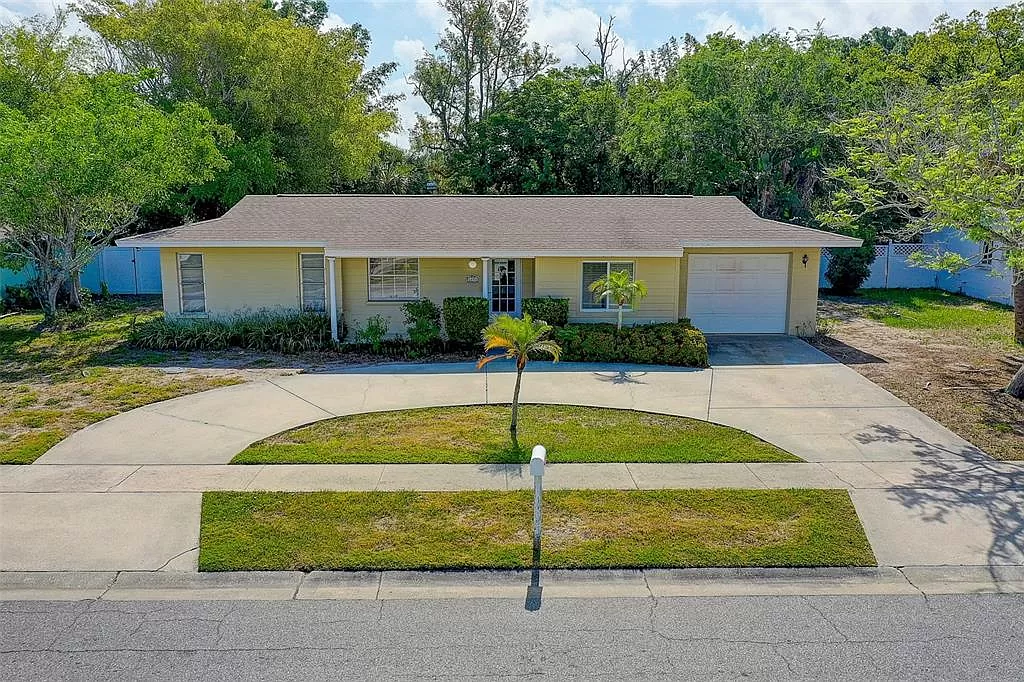Editorial Integrity
Making informed real estate decisions starts with having the right knowledge. At HomeAbroad, we offer US mortgage products for foreign nationals & investors and have a network of 500+ expert HomeAbroad real estate agents to provide the expertise you need. Our content is written by licensed mortgage experts and seasoned real estate agents who share insights from their experience, helping thousands like you. Our strict editorial process ensures you receive reliable and accurate information.
Key Takeaways:
1. Indian citizens can buy US real estate without a visa or US credit history, making it easier to invest from overseas.
2. You can secure a US mortgage with remote closing options, making the process convenient from anywhere.
3. HomeAbroad simplifies the process by offering tailored mortgage options, LLC setup, and US bank account assistance, all under one roof for Indian citizens.
Table of Contents
Did you know that Indian citizens are making a significant investment in US real estate, purchasing 4,700 homes in 2025 for a total of $2.2 billion? This growing trend highlights the increasing demand for US properties among Indian citizens. (Source: NAR)
What’s even more encouraging is that you don’t need a US credit history or residency to join this wave. Whether you’re investing for rental income, long-term appreciation, or personal use, mortgage programs explicitly designed for foreign buyers make it easier than ever for Indian citizens to finance US properties.
In this guide, we’ll walk you through the process of obtaining a US mortgage for Indian citizens, explore loan options, outline eligibility requirements, and provide a step-by-step approach to help you finance your US property with ease.
Can Indian Citizens Qualify for US Mortgages?
Yes! Indian citizens can qualify for US mortgages. Whether you are a resident or a non-resident, you can secure financing for US real estate, making property ownership across borders achievable.
At HomeAbroad, we offer customized mortgage solutions for Indian buyers and investors, even those without a US credit history. We also assist with setting up a US bank account, forming an LLC, and everything you need to streamline your US real estate journey.
Let’s take a closer look at the mortgage options available for Indian citizens.
US Mortgage Options for Indian Citizens
Indian citizens have access to various mortgage options in the US, even without a US credit score or residency. These loan programs are tailored for Global Investors, offering flexible eligibility criteria and competitive terms.
US Mortgage Options Without a US Credit History
For Indian citizens without a US credit history, several loan programs focus on alternative qualifying criteria, such as rental income, international credit reports, or foreign financial documents.
Here are the mortgage options available:
1. DSCR Loan (Debt-Service Coverage Ratio)
HomeAbroad’s DSCR loans are an excellent option for Indian investors seeking to finance rental properties in the US without a traditional US credit history. Instead of relying on personal income, this loan focuses on the property’s rental income, making it ideal for building a real estate portfolio.
Key Requirements and Program Features:
- DSCR Ratio: >= 1 for best terms, <1 eligible with higher down payment. We provide DSCR Loans for foreign nationals with a DSCR ratio as low as 0.75, which means you are eligible even if your rental covers just 75% of the mortgage.
- Down Payment: 25%
- Cash Reserves: 6 Months
- LTV Ratio: Up to 75% for Purchase and Rate/Term Refinance, up to 70% for Cash Out Refinance
- Property Use: Investment properties (residential and commercial)
For more details, check out our comprehensive DSCR Loan Guide.
2. Full Documentation Loan
A full documentation loan is best suited for Indian citizens with stable employment and consistent income. By providing the required financial documents, you can secure this loan to purchase your personal or investment property in the US.
Key Requirements and Program Features:
- Debt-to-Income Ratio: Less than 43%
- Down Payment: 20%-25%
- Loan Term: Up to 30 Years
- Cash Reserves: 6 months
Required documents include Pay Stubs, 1099s, Bank Statements, and a CPA Letter for self-employed. If you lack a US credit history, we also accept foreign income and asset documents, international credit reports, or alternative proof of creditworthiness from your home country. The approval time for this loan is within 30 days.
For more details, check out our comprehensive Full Documentation Loan.
3. Fix-and-Flip Loan
Fix-and-flip loans are designed for investors who want to purchase, renovate, and sell properties for a profit. These short-term loans provide quick access to funds, making them ideal for individuals seeking to capitalize on real estate opportunities, even without an established US credit history.
Key Requirements and Program Features:
- Down Payment: 25%-30%
- Loan Term: 6-24 Months
- LTC (Loan-to-Cost): Up to 85%
- Rehab Cost: Up to 100%
- ARV (After Repair Value): Up to 75%
- Other Requirements: A detailed renovation plan with cost estimates and Proof of previous successful flip projects may be required.
- Approval Time: Within 15 Days
For more details, explore our Fix and Flip Loan Guide.
4. Bridge Loan
A bridge loan is ideal for Indian investors who need temporary financing while transitioning between properties. Whether you’re selling an existing property or waiting for another deal to close, this loan helps you bridge the gap without financial strain, even without a strong US credit score.
Key Requirements and Program Features:
- Down Payment: 30%
- Loan Term: 6-24 Months
- LTV Ratio: Up to 70% for Purchase and Rate/Term Refinance, up to 65% for Cash Out Refinance
- Other Requirements: Proof of existing property equity, an exit strategy for loan repayment, and a property appraisal.
For more details, explore our Bridge Loan Guide.
HomeAbroad simplifies the mortgage process for Indian citizens, offering expert guidance and seamless financing solutions.
US Mortgage Options with a US Credit History
If you have a valid US visa and a strong US credit score, you may also qualify for traditional mortgage options like Conventional Loans. These loans offer lower interest rates and down payment options, making them attractive choices for long-term homeownership or investment.
1. Conventional Loan:
A widely used mortgage option for buyers with a strong credit profile. Conventional loans offer competitive interest rates and flexible terms, making them an attractive choice for long-term investments.
Note: FHA Loans (Federal Housing Administration loans) were once a popular choice for Indian citizens in the US. However, non-permanent residents are no longer eligible for new FHA loans unless their case number was issued before May 25, 2025, as per the latest FHA guidelines. Indian citizens can still be eligible if they: 1. Have lawful residency status in the US. 2. Are authorized to work. 3. Intend to use the property as their principal residence. However, non-citizens must provide USCIS documentation of lawful residency and work authorization. But, refugees and asylees are exempt from needing an Employment Authorization Document (EAD).
Whether you’re investing in US real estate as a foreign national or holding a visa with an established credit history, multiple mortgage options are available to suit your financial situation. Choosing the right one can make all the difference in your investment journey.
HomeAbroad simplifies this process by offering expert guidance and tailored mortgage solutions. Whether you are looking for a DSCR loan for rental properties or a bridge loan for short-term financing, our team ensures you find the financing option that aligns with your goals.
Case Study: How an Indian Investor Secured a US Mortgage with HomeAbroad
Joseph D’Souza, an ambitious Indian investor, was eager to step into the US real estate market. His primary objective was to purchase an investment property without increasing his financial burden.
He was looking for a mortgage solution that didn’t require a US credit history or residency. That’s when he found HomeAbroad, which helped him secure a DSCR loan tailored for foreign investors.
Here’s a breakdown of his successful purchase:
Property Details:
Location: Memphis, Tennessee
Property value: $210,000
Monthly Rent: $1,800
Rental Yield: 10.28%
Loan Details:
Loan Amount: $157,500 (75% LTV)
Down Payment: $52,500 (25%)
Loan Term: 30 years fixed
Interest Rate: 9.25%
Mortgage Payment (PITIA): $1,525
DSCR Calculation:
DSCR = Gross Rental Income ÷ PITIA
DSCR = $1,800 ÷ $1,525
DSCR = 1.18
With a DSCR of 1.18, Joseph’s loan was approved, allowing him to invest in profitable rental property while maintaining financial flexibility.
With HomeAbroad’s support, Joseph completed the entire process smoothly, from securing a DSCR loan without a US credit history to setting up an LLC and finding the perfect rental property.
His success is an excellent example of how Indian investors can confidently enter the US real estate market with the right team in place. Let’s explore the step-by-step process for securing a US mortgage as an Indian citizen.
How to Apply for US Mortgages as an Indian Citizen?
Applying for a US mortgage as an Indian citizen with HomeAbroad is a streamlined process tailored to help you secure financing without unnecessary hurdles.
Our expertise, customer-centric approach, and AI-driven property search engine ensure you find high-rental-yield properties and get the right mortgage with minimal hassle.
Here’s a step-by-step guide:
Step 1 – Decide the Location
Step 2 – Get a Pre-Approval Letter from HomeAbroad
Step 3 – Work with a Local Investor-Friendly Real Estate Agent

Find the best real estate agent with international expertise
Connect with a HomeAbroad real estate agent in your area.
Step 4 – Sign the Purchase Agreement & Start the Loan Process
Step 5 – Order Required Property Reports
Step 6 – Loan Underwriting & Document Collection
Step 7 – Clear to Close & Final Loan Disclosure
Step 8 – Closing
With HomeAbroad, you get more than just financing; we help set up LLCs, US bank accounts, and every essential step to ensure a seamless investment journey in the US real estate market.
Tax Considerations for Indian Investors
The tax obligations for Indian citizens investing in US real estate are the same as those for US Citizens. Rental income earned from US properties is subject to US tax. However, certain deductions, like property expenses and depreciation, can reduce taxable income.
When selling property, Indian investors are also subject to capital gains tax. The FIRPTA law mandates a 15% withholding tax on the gross sale price, which can be credited against your tax liability.
The US-India Double Taxation Avoidance Agreement (DTAA) helps prevent double taxation. Indian investors can claim tax credits for US taxes paid when filing taxes in India, ensuring they’re not taxed twice on the same income.
For more details about tax implications, check out our comprehensive Tax Guide.
Apply for a US Mortgage as an Indian Citizen with HomeAbroad
As an Indian citizen, securing a US mortgage is within your reach with the proper guidance and expert support. Whether you’re looking to invest in rental properties, buy a home for personal use, or expand your real estate portfolio, various mortgage options are available for foreign buyers like you.
At HomeAbroad, we offer tailored mortgage solutions that fit your unique needs as a global buyer. With HomeAbroad’s AI-driven investment property search platform, you can easily identify high rental yield properties, ensuring a seamless experience from start to finish.
Beyond financing and property searches, our concierge services cover everything from LLC and insurance setup to US bank account setup and property management, allowing global buyers to focus on their investment goals with confidence.
Let HomeAbroad guide you through every step, helping you secure financing and turn your US real estate dreams into reality. Apply today and get pre-approved for a foreign national loan with utmost ease and clarity.
FAQs
Can Indian citizens buy property in the US without a visa?
Yes, Indian citizens can invest in US real estate even without a visa. There are no restrictions on foreign ownership of property in the US.
Can I apply for a mortgage remotely from India?
Yes. HomeAbroad offers remote mortgage options with end-to-end support, including virtual property tours and remote closings.
Are Indian investors eligible for FHA loans in the US?
No. According to the latest FHA guidelines, non-permanent residents are no longer eligible for new FHA loans unless their case number was issued before May 25, 2025.
Is it necessary to set up a US LLC to invest in property?
Setting up an LLC is not mandatory but is often recommended for liability protection and better tax structuring, especially for rental or investment properties.
At HomeAbroad, we ensure the reliability of our content by relying on primary sources such as government data, industry reports, firsthand accounts from our network of experts, and interviews with specialists. We also incorporate original research from respected publishers when relevant. Discover more about our commitment to delivering precise and impartial information in our editorial policy.
National Association of Realtors: 2024 International Transactions in US Residential Real Estate




![How Can Indian Citizens Get US Mortgages? [2026]](https://homeabroadinc.com/wp-content/uploads/2022/06/HowCanIndianCItizensGetUsMortagaes-500x325.png)





















